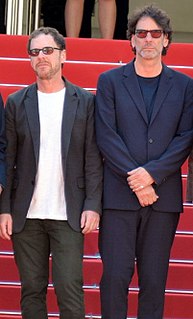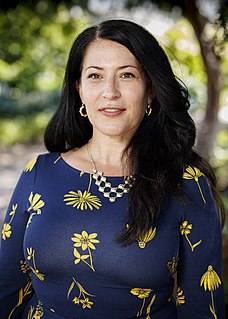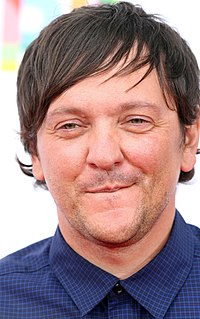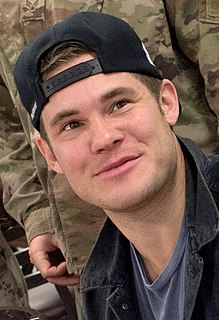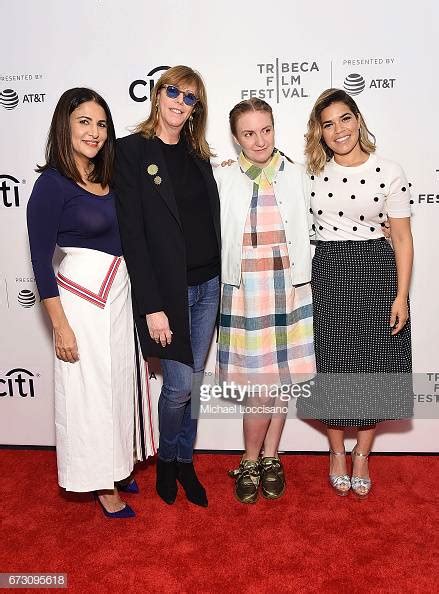A Quote by Joel Coen
I've never really understood that. It's a funny thing; people sometimes accuse us of condescending to our characters somehow-that to me is kind of inexplicable.
Quote Topics
Related Quotes
'Thunderbolts' I was mostly attracted to because I really wanted to write Punisher and Elektra and Deadpool, who are characters I have always really enjoyed. But the funny thing is that over time, I came to really like Red Leader; he became one of my favorite guys in the book. Sometimes characters surprise you.
When people say stuff to us casually in reviews, if they write about it in a condescending way with really gendered language, that's not really about me. It used to hurt my feelings more than it does now. That's not about us as a band or me as a person. That's about how you feel about women, and that's a societal thing.
To me, the thing that sets us apart from so many other animal species is our ability to ask questions, investigate, gather information, come to our own conclusions, and sometimes depart from the pack, sometimes move away from the tribe. And I'm not seeing a lot of that right now among a sizable portion of American politics and American voters. I'm not seeing that kind of use of critical thinking, and it really, really freaks me out.
I think, as poets, we are in the odd position of constantly defending our art form. Which is funny and also sort of invigorating, too. No one really says, "Oh you're a lawyer? I've never understood the law. In fact, I kind of hate it." Or, "Oh you wait tables? I didn't know that was something people did." I say it can be invigorating because, on some level, we have to evaluate what we do and why we do it almost daily. We have to explain ourselves to people all the time. We have to say, "Yes, I am a unicorn, believe in me."
I think sometimes people become quite emotional about the characters as well, and that's pretty cool that you can get that emotion out of people. And I think that's more my motivation than like, "Hey I want to be the funny guy, I want to be that famous funny guy." That doesn't sit as well with me as the idea of taking people on this ride and taking them into the illusion of the characters. That's much more exciting for me.
I just know from experience that reading a funny poem aloud, especially at the beginning of a public reading, can have a certain effect. Somehow narrowing the spectrum of possible emotional reactions. So while I like it when people laugh at my poems, and I definitely enjoy being funny in them, I don't really think that's the most important thing that's going on, at least not to me.
It's when people come at you on Twitter and say really crazy things. That's the kind of stuff that I insulate myself from. All of that is not very interesting or helpful, but we have critics who sometimes really love us or sometimes don't, and it's really interesting for me to see what they don't like about it.
We are somehow the children of the planet, we are somehow its finest hour; we bind time, we bind the past, we anticipate the future - we are going hyper-spatial; we are claiming a whole new dimension for biology that it never claimed before. We are actually becoming a fourth-dimensional kind of creature. Our future is somehow with us, as we seem to be able to move through metamorphosis into our own imaginations - a super civilization spread throughout space and time. Our future is a mystery, our destiny is to live in the imagination.
In terms of my relationships with a lot of the adult characters, when I was working with Harrison, it wasn't like a verbal agreement, but we both understood that because there was this constant tension between our characters, we couldn't say "Cut" and start acting normal. We had to keep an essence of that relationship in our characters off screen which is really important.
I've never really understood how people cannot value the future, or think that the world is going down a fast slippery slope of degradation. No, I don't think so; this is just what it's going to take to wake us up, and allow us to do what our ancestors did. You know, our ancestors brought us here by tooth and claw. A lot of people perished, a lot of pre-humans perished. Life has never been easy. Why should it be easy for us?
It seems that the ancient Medicine Men understood that listening to another's story somehow gives us the strength of example to carry on, as well as showing us aspects of ourselves we can't easily see. For listening to the stories of others - not to their precautions or personal commandments - is a kind of water that breaks the fever of our isolation. If we listen closely enough, we are soothed into remembering our common name.
I think bringing depth to characters means really needing to find out who this girl is, what is she passionate about, what makes her tick, what gets her going in life. So I did a lot of backstory for who she was and sometimes it comes across screen and sometimes it doesn't. You never know, because you're not the director, but you can only do your work and hope that it somehow subtly is infiltrated in that. But I think the characters I've played for the most part have depth, just not in the way that you think they do.
